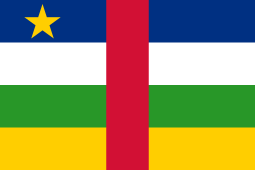SAR 80
| Rifle, 5.56 MM, SAR 88 / SR88 | |
|---|---|
|
The SAR 88 assault rifle | |
| Type | Assault rifle |
| Place of origin | Singapore |
| Service history | |
| Used by | See Users |
| Wars | Yugoslav Wars |
| Production history | |
| Designer | Frank Waters |
| Designed | 1976-1984 |
| Manufacturer | Chartered Industries of Singapore (CIS, now ST Kinetics) |
| No. built | 20,000 (in Singapore), unknown number of exports |
| Variants | Standard, Grenade launcher |
| Specifications | |
| Weight | 3.7 kg (8.2 lb) (empty and without accessories) |
| Length | 970 millimetres (38 in), 738 millimetres (29.1 in) with butt folded |
| Barrel length | 459 millimetres (18 in) |
|
| |
| Cartridge | 5.56×45mm NATO |
| Action | Gas-operated, rotating bolt |
| Rate of fire | 600 round/min |
| Feed system | Various STANAG magazines |
| Sights | Iron sights |
The Singapore Assault Rifle 80 (SAR 80) is an indigenously built, conventional assault rifle from Singapore.
History and development
In the late 1960s, the Singapore Armed Forces (SAF) adopted the AR-15 as their main service rifle. Due to difficulties in obtaining the rifles from the United States, the Singaporean government purchased a license to domestically manufacture the M16 rifle, which was then designated the M16S1. However, the domestic rifle requirements were not sufficient to allow Chartered Industries of Singapore (CIS, now Singapore Technologies Kinetics) to economically maintain operations at its rifle factory. Export sales of the M16S1 were not a viable option. Due to the requirements of the license agreement, CIS had to request permission from Colt and the US State Department to allow any export sale, which they rarely granted.
In the early 1970s, Sterling engineers had developed their own 5.56 mm rifle design, the Light Automatic Rifle (LAR), but this had been shelved when Sterling acquired a manufacturing licence for the US-designed Armalite AR-18 assault rifle. While Sterling could not legally sublicense the AR-18, their LAR design was available.[1][2] As a result, the new Singapore rifle design closely resembled the LAR with certain AR-18 elements.
The successor to this weapon is the SR-88.
Other issues
It has been mistakenly reported in many foreign articles (including Jane's Guns Recognition Guide) that this weapon is the standard assault rifle of the Singapore Army. On the contrary, it was not widely adopted and Singapore soldiers were not trained on the weapon in large numbers.
Although consideration was given to replace the M16S1 with the SAR 80 due to its lower manufacturing costs and reliability, it was not well received because it was less user friendly and heavier. As a result, the M16S1 remained the mainstay of the Singapore Armed Forces until it was replaced by the SAR 21 in early 2000s. Only 20,000 SAR 80 were bought by Singapore, and most have been phased out in favor of the newer SAR 21. As of 2000, an undisclosed number of SAR 80 are still being stored in Singapore Police armouries and used in Army logistics units.
Users

 Central African Republic - Seen in the hands of Central African Gendarmerie.[3]
Central African Republic - Seen in the hands of Central African Gendarmerie.[3] Croatia - Croatian Army.[4]
Croatia - Croatian Army.[4] Papua New Guinea - Papua New Guinea Defence Force.[5]
Papua New Guinea - Papua New Guinea Defence Force.[5] Singapore - Adopted by the Singapore Armed Forces in 1984.[4]
Singapore - Adopted by the Singapore Armed Forces in 1984.[4] Slovenia - Slovenian Army.[6]
Slovenia - Slovenian Army.[6] Somalia - Somalia received SAR 80s during the 1980s.[6]
Somalia - Somalia received SAR 80s during the 1980s.[6]
See also
References
- ↑ The Sterling Years: Small Arms and the Men, James Edmiston, ISBN 1848844379
- ↑ Military Small Arms of the 20th Century, 4th Edition, by Ian V. Hogg and John Weeks, ISBN 0-910676-28-3,Ca 1981
- ↑ Markogiannis, Nektarios (2015-02-26). "UNPOL Operation in Boyrab". UN Mission in the Central African Republic MINUSCA. Retrieved 2017-02-01.
- 1 2 http://world.guns.ru/assault/as55-e.htm
- ↑ Alpers, Philip (2010). Karp, Aaron, ed. The Politics of Destroying Surplus Small Arms: Inconspicuous Disarmament. Abingdon-on-Thames: Routledge Books. pp. 168–169. ISBN 978-0-415-49461-8.
- 1 2 C. J., CHIVERS (January 25, 2012). "Somali Pirate Gun Locker: An Oddball Assault Rifle, at Sea". The New York Times. The New York Times Company. Retrieved 23 March 2013.